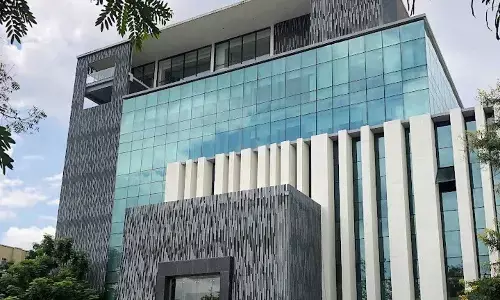Workplace challenges for techies

Today's enterprise environment provides a hotbed of opportunities and challenges for tech professionals.
Today's enterprise environment provides a hotbed of opportunities and challenges for tech professionals.
With Covid-19 creating numerous hurdles for business operations, business leaders turned to their IT team to navigate the crisis which helped elevate the status of IT professionals.
However, it has also been responsible for the emergence of workplace issues. Challenges such as lack of growth, keeping up with technological advancements, and feeling disconnected and disrespected at the workplace are plaguing today's professionals working in the enterprise world.
While tech and HR leaders are at the forefront to address these challenges, they cannot do it in silos.
It is critical that these leaders collaborate to assess the challenges their employees are facing.
There should be meetings on a frequent basis to understand the pain points, create new initiatives to address them, provide a roadmap for their growth, and much more.
Here are ten issues professionals are facing in India and what organizations can do in order to tackle them:
Increased workload
Majority of the IT staff and decision-makers are overwhelmed with work demands.
Many decision-makers are using a higher workload as an excuse to not authorise training for their employees resulting in their staff's inability to meet assignment timelines due to a lack of skills, further exacerbating frustration at the workplace
The time, which was allocated for learning and development (L&D) is now being utilised to chase deadlines. Most IT professionals admit that a mounting workload is limiting the amount of time they can spend out of the office or in upskilling themselves.
A concrete management strategy is needed to address these issues.O rganisations can also consider opting for tools to reduce time-consuming tasks that are not on high priority.
Keeping up with technological evolution
Technology is innovating at an unprecedented pace. As soon as a tool or software emerges, it seems like something else is already in the process that will render its usage.
For professionals working in the tech industry, keeping themselves up-to-date with rapidly changing technologies can be intimidating. This will only worsen if organisations expect their employees to adapt to these changes without giving adequate training. It is vital that organisations take time to ensure their teams are keeping pace with the times.
Feeling disconnected
While the remote and hybrid environments have provided employees with much-needed flexibility, it is also making them feel disconnected from the workplace.
This especially holds true for employees who have recently transitioned into a new job. Feeling a lack of connectedness at the workplace often stems from employees not being able to understand and blend with the enterprise culture.
For a vast majority of employees, a good work culture is essential to be effective at their jobs. Organisations should also emphasise on supporting employees with their life experiences. Doing so can have a positive impact on the employees' overall well-being while also making them more productive.
Lack of career advancement opportunities
A survey from cloud learning platform Talentlms revealed that over 41% of tech professionals quit their jobs due to a lack of career progression.
In fact, career advancement is more important for tech professionals than a higher salary when deciding to switch firms.
With CIOs already facing a talent crunch, letting go of their top talent can stifle their ongoing digital transformation initiatives.
The solution is to collaborate with HR leaders to invest in employees' skill sets and help them excel in their careers. This will also develop a positive outlook of employees towards the organization and many of them will think of staying back in the long run.
In-flexible schedules and workplace
Most remote employees often must juggle between work and family commitments.
This means that working between a 9-5 work schedule is not feasible for them. Also, with many employees still pushing to or favoring remote work, being called back to the office is not something they are enthusiastic about. Majority of today's professionals expect flexible schedules and flexible work arrangements. Employees admitted that having flexible work arrangements significantly influenced their decision to stay with their employer.
Poor work-life balance
Work-life balance has always been a tricky area in the enterprise landscape as most IT professionals are expected to put in long work hours.
But this doesn't translate into productivity and along with disrupting their work-life balance, can also have a negative impact on the employee's overall well-being.
More employees today prefer to work for an enterprise that provides work-life balance.
Hence, organisations should start evaluating the work-life balance at their organisation.
They should include this critical element into their culture itself and give importance to time off and the notion that rest and relaxation are vital for peak productivity.








